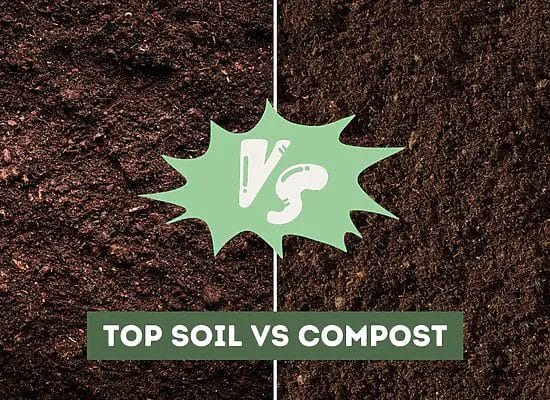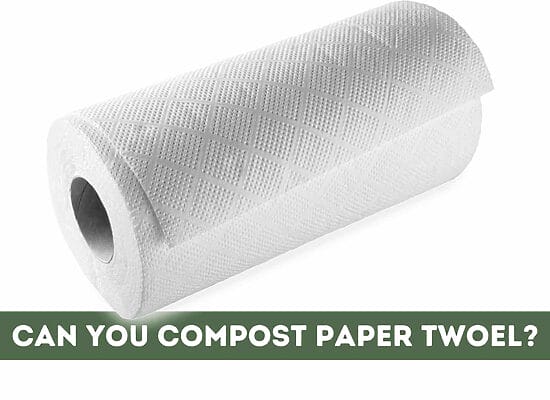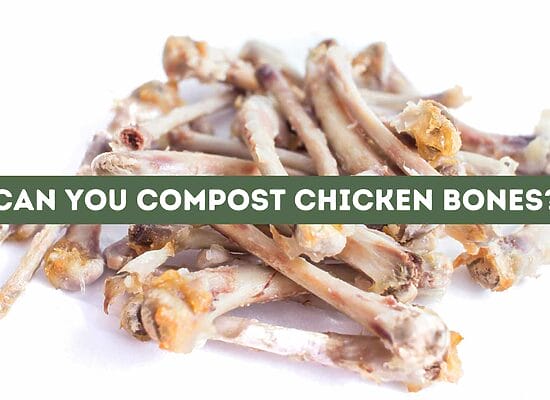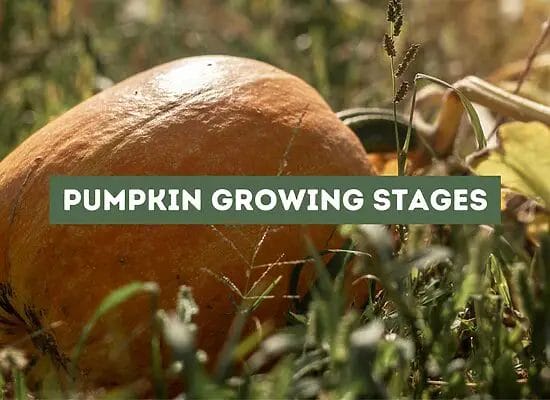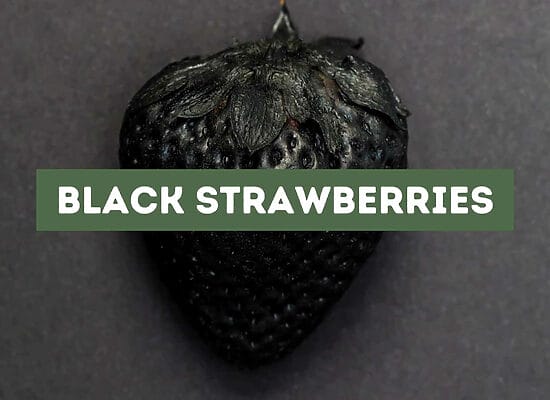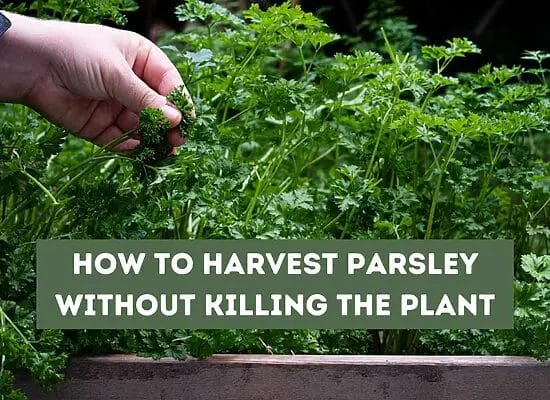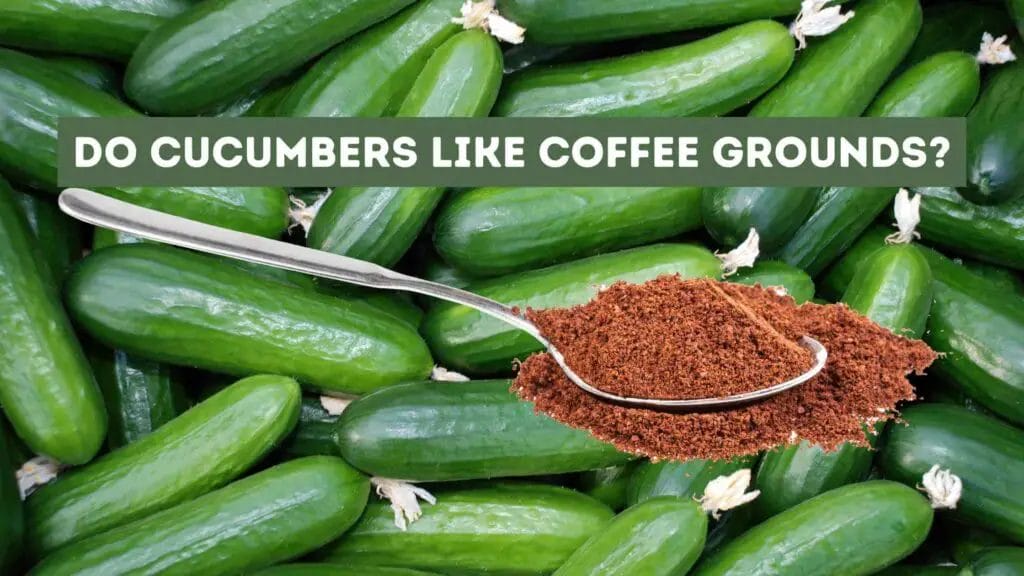
If you’re a fan of gardening, you may have heard that coffee grounds are a great addition to your soil. But what about cucumbers? Do cucumbers like coffee grounds? The answer is yes! Cucumbers thrive in soil that is rich in nutrients, and coffee grounds are a great source of nitrogen, potassium, and phosphorus.
Coffee grounds can also help improve the texture of the soil, making it more fertile and better-draining. This can be especially beneficial for cucumbers, which need well-draining soil to prevent root rot. Additionally, coffee grounds can help attract earthworms, which are important for maintaining healthy soil. However, it’s important to use coffee grounds in moderation, as too much can cause the soil to become too acidic and harm your plants.
Key takeaways:
- Coffee grounds are beneficial for cucumbers due to their nutrient content and soil improvement qualities.
- Cucumbers thrive in nutrient-rich soil, and coffee grounds provide nitrogen, potassium, and phosphorus.
- Coffee grounds enhance soil texture and drainage, essential for preventing root rot.
- Earthworm attraction by coffee grounds aids in maintaining healthy soil.
- However, moderation is crucial to avoid soil acidity and plant harm.
- Coffee grounds can be added to compost to accelerate decomposition and nutrient enrichment.
- When used in cucumber planting, coffee grounds should be mixed with other organic matter for optimal results.
Understanding Cucumbers
Cucumbers are a popular vegetable that belongs to the gourd family. They are commonly used in salads, sandwiches, and pickling. Cucumbers are a great source of hydration as they are made up of 96% water. They are also low in calories and high in fiber, making them a healthy snack option.
Cucumber plants are annual plants that require warm temperatures to grow. They can grow up to 6 feet tall and need support to climb. The leaves of the cucumber plant contain chlorophyll, which is responsible for the plant’s green color. Chlorophyll plays a crucial role in photosynthesis, the process by which plants convert sunlight into energy.
Cucumbers are considered a fruit because they contain seeds. However, they are commonly used as a vegetable in culinary dishes. They come in different varieties, including slicing cucumbers, pickling cucumbers, and burpless cucumbers.
When it comes to growing cucumbers, it is important to provide them with the right nutrients. Cucumber plants require nitrogen, phosphorus, and potassium to grow. Coffee grounds are an excellent source of these nutrients and can be used as a fertilizer for cucumber plants. However, it is important to ensure that the overall soil nitrogen content is within normalized levels to avoid over-fertilization.
To ensure the best growth for your cucumber plants, it is important to plant them in rich, fertile, and well-draining soil. Adding organic matter, such as compost or coffee grounds, can help improve soil quality and drainage. Additionally, cucumber plants require plenty of sunlight and warm temperatures to thrive.
Coffee Grounds: An Overview
If you are looking to improve the soil quality of your cucumber plants, you may have heard that coffee grounds can be a helpful addition. Coffee grounds are the leftover residue from brewed coffee, and they can be used as a natural fertilizer for your plants. Here is an overview of what you need to know about coffee grounds and their benefits for your cucumber plants.
Nutrient Content
Coffee grounds are rich in nitrogen, phosphorus, potassium, magnesium, calcium, and iron. These nutrients are vital for plant growth and can boost the thriving of your cucumber plants. Nitrogen is particularly important for leafy growth, while phosphorus and potassium are important for fruit and flower development.
Acidity
Coffee grounds are mildly acidic, with a pH level of around 6.5. This makes them a good addition to soil that is too alkaline, as they can help to balance the pH level. However, if your soil is already too acidic, adding coffee grounds can make the problem worse. It is important to test your soil’s pH level before adding coffee grounds.
Composting
Coffee grounds can also be added to your compost bin. They are considered a “green” material, along with other nitrogen-rich materials like grass clippings and vegetable scraps. When added to a compost pile, coffee grounds can help to speed up the decomposition process and add valuable nutrients to the finished compost.
Using Coffee Grounds for Cucumbers
If you want to use coffee grounds for your cucumber plants, it is important to use them in moderation. Too much nitrogen can cause excessive leaf growth at the expense of fruit development. A good rule of thumb is to mix coffee grounds with other organic matter, such as compost or leaf mold, before adding them to your soil.
Do Cucumbers Like Coffee Grounds?
If you’re an environmentally-conscious gardener, you might be wondering if coffee grounds are a good addition to your cucumber plants. The answer is yes! Cucumbers like coffee grounds, and there are several reasons why.
Firstly, coffee grounds are a natural and sustainable fertilizer that can help promote plant growth and increase yield. They are rich in nitrogen, which is an essential nutrient for plants. Additionally, coffee grounds can help improve soil texture by adding organic matter, which can improve water retention and drainage.
Using coffee grounds as a compost or mulch around your cucumber plants can also provide natural support and protection for the plant. Coffee grounds can help prevent root rot and over-fertilization while also providing vitamins and nutrients to the plant.
However, it’s important to note that coffee grounds should be used in moderation. While they are effective, too much can harm your plants. Cucumbers prefer slightly acidic soil with a pH of 6.0-6.8, and coffee grounds can raise the pH level if used excessively.
The Benefits of Coffee Grounds for Plants
If you are a gardener, you may be wondering if coffee grounds are good for your plants, particularly cucumbers. The answer is yes! Coffee grounds are an excellent source of organic matter and nutrients that can improve the soil structure and enhance the growth of your plants.
One of the main benefits of coffee grounds is their high nitrogen content. Nitrogen is an essential nutrient for plant growth that helps to promote healthy foliage and fruit development. Adding coffee grounds to your soil can provide a nutrient-rich fertilizer that your cucumbers will love.
Coffee grounds aren’t just rich in nitrogen; they also hold vital nutrients like phosphorus, potassium, and magnesium. These nutrients work wonders, fortifying your plant’s roots, enhancing soil texture, and boosting its organic goodness.
Coffee grounds can also improve the water retention and aeration of your soil. They act as a soil amendment that helps to loosen clay soil and improve drainage. This can be particularly beneficial for cucumbers, which need well-draining soil to prevent root rot.
If you’re looking to use coffee grounds in your garden, there are a few things to keep in mind. First, it’s important to use aged compost or coffee grounds that have been allowed to decompose for several months. Fresh coffee grounds can be too acidic and may harm your plants.
Second, it’s best to use coffee grounds in moderation. Though they offer great nutrients, excess usage can disrupt soil balance. Aim for 10-20% coffee grounds in your soil mix as a general guideline.
Finally, coffee grounds can attract earthworms to your soil, which can help to improve its quality. Earthworms are excellent soil aerators and can help to break down organic matter, making it more nutritious for your plants.
Other Plants That Benefit from Coffee Grounds
Coffee grounds are not only beneficial to cucumber plants but also to many other plants. Here are some other plants that benefit from coffee grounds:
Tomatoes
Tomatoes thrive in slightly acidic soil, and coffee grounds can help to lower the pH level of the soil. Coffee grounds also contain nitrogen, which is essential for the growth of tomato plants.
Peppers
Pepper plants also benefit from the nitrogen and acidity found in coffee grounds. In addition, coffee grounds can help to improve the soil structure, which can lead to healthier and more productive pepper plants.
Blueberries
Blueberries prefer acidic soil, and coffee grounds can help to lower the pH level of the soil. Coffee grounds also contain other nutrients that are beneficial to blueberry plants, such as potassium and magnesium.
Broccoli
Broccoli plants require a lot of nitrogen to grow, and coffee grounds are a great source of nitrogen. Coffee grounds can also help to improve the soil structure, which can lead to healthier and more productive broccoli plants.
Carrots
Carrots prefer loose, well-draining soil, and coffee grounds can help to improve the soil structure. Coffee grounds also contain other nutrients that are beneficial to carrot plants, such as phosphorus and potassium.
Berries
Berries, such as raspberries and strawberries, also benefit from the acidity found in coffee grounds. Coffee grounds can help to lower the pH level of the soil, which can lead to healthier and more productive berry plants.
Radishes
Radishes are a fast-growing vegetable that require a lot of nitrogen to grow. Coffee grounds are a great source of nitrogen and can help to promote the growth of healthy and productive radish plants.
Roses
Roses prefer slightly acidic soil, and coffee grounds can help to lower the pH level of the soil. Coffee grounds also contain other nutrients that are beneficial to rose plants, such as phosphorus and potassium.
Asparagus
Asparagus plants require a lot of nitrogen to grow, and coffee grounds are a great source of nitrogen. Coffee grounds can also help to improve the soil structure, which can lead to healthier and more productive asparagus plants.
Containers
Plants grown in containers can also benefit from coffee grounds. Coffee grounds can help to improve the soil structure, which can lead to healthier and more productive container plants. In addition, coffee grounds can help to retain moisture in the soil, which can be beneficial for plants grown in containers.
Pest Control with Coffee Grounds
If you’re looking for an environmentally-friendly way to control pests in your cucumber plants, coffee grounds may be the solution you need. Coffee grounds have been found to have pest-repellent properties that can help protect your plants from damage caused by unwanted insects.
One of the pests that coffee grounds can repel is ants. Ants are attracted to the sweet nectar of cucumber plants, but the diterpenes found in coffee grounds can keep them away. Simply sprinkle coffee grounds around the base of your cucumber plants to create a barrier that ants won’t cross.
Another pest that coffee grounds can repel is slugs and snails. These pests can cause significant damage to cucumber plants, but the texture and smell of coffee grounds act as a natural deterrent. Spread a layer of coffee grounds around the base of your plants to keep slugs and snails away.
Using coffee grounds for pest control is also a great alternative to using pesticides. Pesticides can harm beneficial insects and pollinators, but coffee grounds are completely safe and non-toxic. Plus, they’re a great way to repurpose waste from your morning cup of joe.
Pro Tip: To get the most out of your coffee grounds, mix them with other organic materials like grass clippings and leaves to create a nutrient-rich compost that will help your cucumber plants thrive.
Improving Soil Texture and Acidity
If you want to improve the texture and acidity of your soil, coffee grounds can help. Cucumbers grow best in soil with a pH range of 6.0 to 7.0, so if your soil is too alkaline, adding coffee grounds can help bring the pH down to the optimal range for cucumber growth. Before adding coffee grounds, it is important to test your soil’s pH levels to determine if acidifying your soil is necessary.
Coffee grounds can also improve soil texture, making it easier for cucumber roots to grow and absorb nutrients. They provide vital nitrogen, phosphorus, and potassium for robust plant growth. Adding coffee grounds to your soil can also help with drainage, as they can improve the soil’s ability to retain moisture without becoming waterlogged.
When adding coffee grounds to your soil, it is important to use them in moderation. While coffee grounds are a great source of nutrients, too much of a good thing can be harmful. Excessive amounts of coffee grounds can make the soil too acidic, which can inhibit plant growth and lead to nutrient deficiencies. As a general rule, it is best to add no more than 20% coffee grounds to your soil mixture.
In addition to coffee grounds, there are other ways to improve soil texture and acidity. Adding lime or wood ash can help raise the pH of acidic soil while adding organic matter such as compost can help improve soil structure and fertility. It is also important to keep weeds under control, as they can compete with your cucumber plants for nutrients and water and weaken the overall health of your soil.
FAQ: Do Cucumbers Like Coffee Grounds
Can coffee grounds be used as a fertilizer for cucumber plants?
Absolutely, coffee grounds work great as a fertilizer for cucumber plants. They provide crucial nutrients like nitrogen, phosphorus, and potassium that plants need to thrive. However, it is important to use them in moderation and mix them with other organic materials like compost to avoid over-fertilizing the soil.
What are some vegetables that benefit from coffee grounds?
Apart from cucumbers, other vegetables that benefit from coffee grounds include tomatoes, peppers, carrots, and beans. Coffee grounds help to improve soil fertility, water retention, and drainage, which are important for the growth and development of these vegetables.
Are coffee grounds good for tomatoes and cucumbers?
Yes, coffee grounds are good for tomatoes and cucumbers. They provide essential nutrients like nitrogen, phosphorus, and potassium that are needed for plant growth. They also help to improve soil texture, water retention, and drainage, which are important for the healthy growth of these plants.
How can coffee grounds be used as a natural fertilizer?
Coffee grounds can be used as a natural fertilizer by mixing them with other organic materials like compost, manure, or leaf mold. This helps to improve soil fertility, water retention, and drainage. They can also be used as a mulch to suppress weeds and retain moisture in the soil.
Can coffee grounds help improve the soil quality for cucumbers?
Yes, coffee grounds can help improve the soil quality for cucumbers. They are a good source of organic matter, which helps to improve soil texture, water retention, and drainage. This is important for the healthy growth and development of cucumber plants.
What are some benefits of using coffee grounds in gardening?
Some benefits of using coffee grounds in gardening include improving soil fertility, water retention, and drainage. They also help to suppress weeds, attract earthworms, and repel pests like slugs and snails. Additionally, coffee grounds are a sustainable and eco-friendly way to recycle waste and reduce landfill waste.


